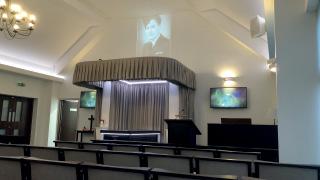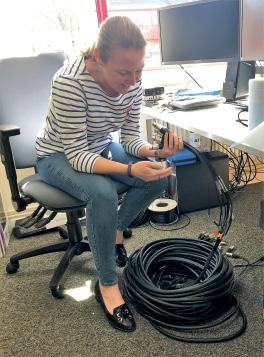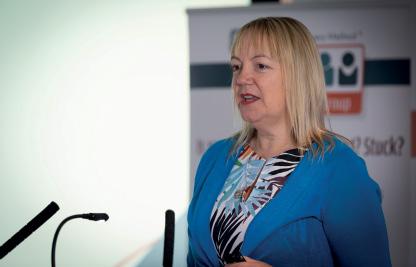The ICCM Journal | Summer 2020 | V88 No. 2
29
webcasting in lockdown The Obitus team support nearly half the UK’s crematoria. James Crossland explains how the lockdown and changes to funerals have affected their operations. Without a doubt, it’s been the hardest 6 weeks of my career. As funeral volumes have sadly risen, so has demand for music. Although visual tribute demand is down, webcast demand keeps on going up. Our support team have never handled so many phone calls. And on top of the rising demands, we’re still out every week installing our service in new crematoria, helping to take the pressure off funeral directors and bereaved families. We were lucky. We were a week or two ahead, anticipating what was to come. I’d been carefully following news of the virus and lockdowns in China and then in Italy, so we’d already reviewed our Business Continuity Plan in preparation. This meant that we spent those first couple of weeks, as the lockdown ratcheted up, dealing with the unexpected rather than the basics. But as fast as we’ve adapted, needs have changed and we’re straight into dealing with the next challenge. Working from home The most immediate concern was transitioning almost our entire 40-strong team to remote working. Technically we could do it, we knew that. But there are so many subtleties we hadn’t even considered. Our team would normally spend all day talking to each other about the needs of specific services, which becomes a lot harder when you’re no longer just a few feet away. Some of the practicalities too, like receiving deliveries of music CDs or vinyl or shipping DVDs or USBs, becomes a lot harder when you’re not in the office. It was in our BCP to reduce our music service if we needed to, but we were determined to keep going. As with many other challenges, we’ve found ways around. Each day, our music team are processing more music requests than ever before from home, only to be met with even more the following day. Different colleagues have dealt with isolation in different ways, too. Some have thrived, while others have clearly struggled, and it’s harder to help and support them when you’re not
there. Personal lives have also been affected, particularly where relationships at home have become strained. Some of us have at-risk relatives we’re understandably concerned about. Some have become ill themselves, and some have sadly been affected by personal bereavements, too. It takes its toll, and we’re all doing our best to be there for each other, even if we’re not in the same room. Webcasting In normal times, webcasting is an important, but relatively low-demand service and our system was designed to handle that level of demand. Webcasting is also by far the most complex service we provide. A successful webcast relies on many systems working correctly, some of which are within our control, and many are not. We hadn’t originally designed the system to quickly scale to handle hundreds of webcasts to thousands of people each day — the system didn’t need to be able to do that. But now it does. Fortunately, we were able to move quickly, with our developers working round the clock to meet these changes in demand and address the technical challenges that accompanied it. In the last 6 weeks, I’m pleased to say we’ve delivered almost every webcast without issue, mainly thanks to the tireless work of our team. Family members Not only has the


















